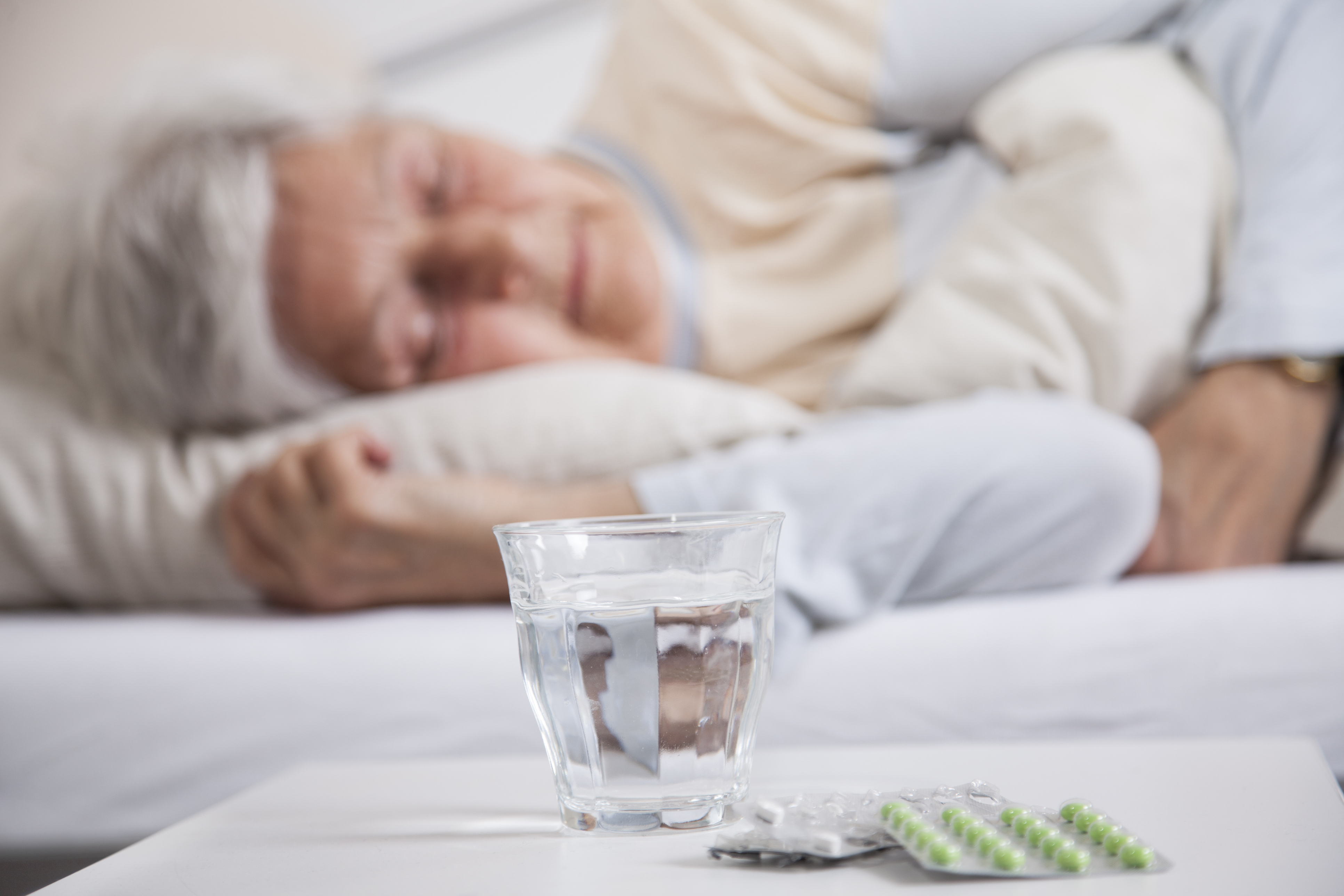Sleeping Pills and Seniors

If you’re having trouble getting a good night’s sleep, you’re not alone. Many Canadians aren’t getting the recommended amount of nightly shut-eye: seven to nine hours for people aged 18 to 64, and seven to eight hours for people 65 and older.
In 2017, Statistics Canada released the findings of its six-year study on sleep. It found that “Short sleep duration and poor sleep quality are prevalent among Canadian adults,” and that one-third of us – including one-third of seniors – sleep fewer hours than needed for optimal physical and mental health.
That’s a lot of tired, grumpy people. But what’s even more troubling is that research has linked chronic sleeplessness, or insomnia, to a wide variety of negative health effects, such as high blood pressure, weakened immunity, a higher risk of heart disease and diabetes, poor balance and cognitive difficulties, including problems with memory, concentration and thinking. It’s no wonder that many Canadians are seeking insomnia solutions – including sleeping pills.
Hope in a pill
Nearly a third of older adults in Canada take sleeping pills, also known as tranquilizers or sedative-hypnotics. They are available both over the counter and by prescription.
However, experts caution that these medications may not help very much. “On average, people who take one of these drugs sleep only a little longer and better than those who don’t take a drug,” says Choosing Wisely Canada (a joint project of the University of Toronto, the Canadian Medical Association and St. Michael’s Hospital in Toronto).
The organization also warns that sleeping pills can have serious side effects for seniors, who are likely to be more sensitive to these medications because of the slower metabolism and lower body weight that often come with growing older.
Side effects of sleeping pills could include dizziness, confusion, memory problems and changes in coordination and balance (which increases the risk of falls). Sometimes, these side effects are mistakenly assumed to be signs of aging. Other side effects include dry mouth, constipation and daytime drowsiness. Over time, sleeping pills can also cause nausea, loss of appetite and blurred vision.
You should also be aware that sleeping pills can become less effective over time. If used for long periods of time, they could worsen your sleeping problems. They can also be addictive, and you may experience withdrawal symptoms if you stop taking them.
If you have tried other remedies for insomnia (see below) and they haven’t helped, sleeping pills may provide a short-term solution and help you break the pattern of bad sleep. Talk to your physician about what’s right for you. He or she can help you identify any potential causes of your insomnia, provide advice on sleeping pills and other therapies, and check if the medication will interfere with any of your other drugs.
Alternatives to sleeping pills
There is much you can do to promote better sleep without taking medication. Small changes to your daytime habits and nighttime routine can make a significant difference. These kinds of changes offer a more sustainable, long-term solution than taking sleeping pills.
- See your doctor for a full medical check-up. Perhaps your insomnia has an underlying medical cause, such as chronic pain, sleep apnea, symptoms of menopause in women, depression or anxiety.
- Reduce your intake of caffeine, which is a stimulant. An American research study found that consuming caffeine even six hours before bedtime decreased sleep time by an hour. Caffeine sources include coffee, tea, pop, energy drinks, chocolate and certain medications.
- The blue light from electronic gadgets suppress melatonin, the hormone that affects your sleep cycle. Avoid using computers, smartphones and tablets before bedtime.
- If ambient noise (such as the sounds of traffic or neighbours) are keeping you up, try earplugs, noise-cancelling earbuds or a white-noise machine.
- Your bedroom should be dark. Invest in a comfortable sleep mask or blackout curtains.
- Your bedroom should also be cool. Lower the temperature to 18°C to 21° You could also try a pillow or mattress topper with cooling gel.
- Getting more daily exercise can improve your sleep.
- If you feel stressed a lot, or you have a lot of negative thoughts, consider a type of counselling known as cognitive-behavioural therapy (CBT).
- Start winding down one to two hours before bedtime. To relax, try dimming the lights, meditating, taking a bath or reading a book.
- Stick to a routine. Go to bed and get up at the same times every day (even on weekends).
For more helpful tips, read our post about sleep hygiene. We also have a post especially for sleep-deprived caregivers.
Physical activity during the day can promote sleep at night. If you or your loved one could benefit from companionship to enjoy a more active lifestyle, contact Bayshore Home Health.
